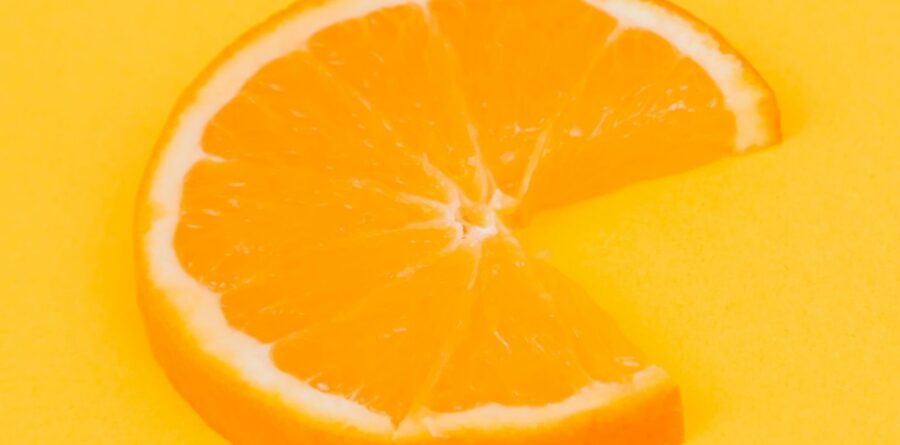Could you be catastrophically deficient in vitamin C?
17/01/2022 - Natasha is Wide Eyed

Here’s an interesting fact to tell your friends; almost all animals can synthesize their own vitamin C apart from humans (and oddly, guinea pigs). We lost the ability to make our own vitamin C about 40 million years ago and from then on, we had to find it in food.
Vitamin C is a water-soluble vitamin, which means it doesn’t stay in the body and you have to consume enough daily. This vitamin has a role in many critical functions, but its main job is to aid the creation of collagen. Think of collagen as the steel bars holding together all the molecules in your body. With a severe deficiency, called scurvy, the collagen keeping the blood vessels in place break down, and the eventual gruesome end would be bleeding to death. Sorry, not nice, but useful to know.
The trouble is that in the average 21st century diet vitamin C is limited. As soon as a fruit or vegetable is harvested the vitamin C is degrading which is made worse by the fact that we fly it around the world. If I pick an orange from a tree and eat it, I will get 70% more than if I buy it once it is flown in and stacked on a supermarket shelf at Aldi. Oranges are not the best source of vitamin C in the UK. And you should definitely avoid orange juice because the lack of fibre in it means that the fruit sugar is turned to fat in your liver before you finish the glass and causes more trouble than it’s worth. Our low vitamin C intake is not enough to cause scurvy that would give you signs of bleeding (the gums go first) externally and internally, but it’s enough to form a work-around process that is causing catastrophic problems elsewhere inside you.
When your remarkably clever body doesn’t get enough vitamin C, it creates a substance called Lp(a) (long version lipoprotein(a)) which provides a plug to prevent blood loss. “Well, that’s good, hooray for my body”, you’re probably thinking. Unfortunately, it is a short-term fix for a long-term problem and with a lifetime of not getting enough vitamin C these short-term fixes start to build up in your arteries. Think of Lp(a) and the blood clot forming from the leaky blood vessel it’s trying to help, like a plaster. If your body gets enough of what it needs including vitamin C to repair the clot, the plaster is no longer needed and breaks down leaving it clear. But continued deficiency means applying a plaster over and over again, narrowing the arteries and leaving calcified plasters all over the place with the potential to restrict blood supply enough for a heart attack or stroke.
You can’t tackle a problem if you don’t know it’s a problem can you? But now you do.
So, here are Natasha’s top tips for getting enough vitamin C every day:
- Choose at least one of the following foods grown in the UK, preferably seasonal and local to you so that you get them with the highest vitamin C content available.
- Watercress, broccoli, Brussel sprouts, kale, cabbage, and cauliflower are great vegetable sources.
- Strawberries and blackcurrants are seasonal fruit choices but you need to choose the ones grown in the UK and available for approximately one month of the year.
- A daily supplement of approximately 1000 mg that incorporates rosehip so that it is recognised by your body as food.
Vitamin C is just one of many critical vitamins and minerals your body requires to keep your body in working order for a long life. If you would like to find out more about how food can help your health issues, visit natashaiswideeyed.com for FREE information and recipes.
Treat yourself to a bigger slice of life.
All articles on this news site are submitted by registered contributors of SuffolkWire. Find out how to subscribe and submit your stories here »



